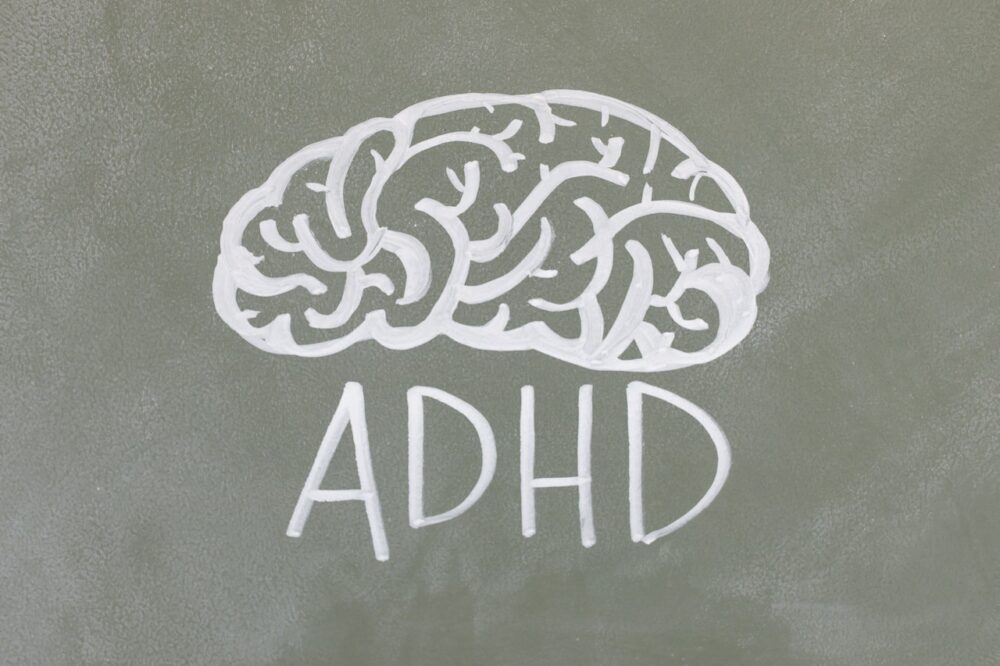
Adult ADHD Symptoms and Signs
Attention-deficit hyperactivity disorder, or ADHD, isn’t only a childhood condition. It affects over 4% of adults in the U.S., and the actual number may be even higher because of the number of adults who are mis- or undiagnosed.
Although the recognized symptoms of ADHD are the same in both children and adults, ADHD can present differently for adults. We often think of kids with ADHD as bouncing off the walls, but adults with ADHD may behave in different ways.
Here are the most important signs and symptoms of adult ADHD, including the official diagnostic criteria as well as other signs to pay attention to.
Adult ADHD Symptoms: Diagnostic Criteria
ADHD is listed in the Diagnostic Statistical Manual (DSM), which is often considered the ultimate authority on psychiatric disorders and their symptoms. The DSM defines three presentations of ADHD: the predominantly inattentive type, the hyperactive-impulsive type, and combined type. Each presentation comes with its own symptoms.
To meet the criteria for an ADHD diagnosis as an adult, you must experience at least 5 symptoms of inattention and/or 5 symptoms of hyperactivity.
The symptoms of predominantly inattentive ADHD are:
- Lacks attention to detail; makes careless mistakes
- Difficulty with sustained attention during tasks
- Cannot or does not follow instructions
- Doesn’t seem to be listening when spoken to
- Difficulty organizing or prioritizing tasks
- Avoids tasks that require sustained effort or attention
- Loses or misplaces objects
- Easily distracted
- Forgetful in day-to-day life
The symptoms of hyperactive-impulsive ADHD are:
- Fidgeting or squirming
- Getting out of your chair when expected to stay seated
- Restlessness
- Cannot engage in quiet leisure activities
- Difficulty staying still for a long time; “on the go”
- Talks excessively
- Interrupts or blurts things out
- Trouble waiting in line or waiting their turn
The most common type of ADHD is combined type; if you have combined type ADHD, you would have some symptoms from each of these lists.
To be diagnosed with ADHD, you must have had these symptoms since you were 12 years old or younger. Some people think, at first, that they only developed their ADHD symptoms in adulthood, but with closer examination, it’s usually discovered that these symptoms were present (although perhaps hidden or masked) when they were children as well.
Signs of ADHD in Adults
The DSM diagnostic criteria is used to help clinicians make an ADHD diagnosis, but it might not be very helpful for you if you think you may have ADHD.
Both children and adults with ADHD face the same symptoms, but they can present in very different ways. It’s important to know what ADHD looks like in adults, specifically, so you can recognize the signs in yourself and get treatment if you need it.
Here are some clear signs of ADHD in adults, and descriptions of how they might present in your life if you live with ADHD. These signs are based on the Adult ADHD Self-Report Scale (ASRSv1.1), which is a screening tool for adult ADHD that is used by clinicians and physicians for adult ADHD.
Trouble with focus
A major sign of inattentiveness in ADHD is an inability to focus. In adults, this symptom may present as “spacing out” during meetings, lectures, or conversations or being easily distracted while you’re trying to complete tasks. They may also find their attention drifting while they’re in the middle of a conversation and have a hard time following along with what people are saying. Unrelated sounds or sights around them might distract them easily.
Many adults find this difficulty with concentration leads them to make careless mistakes at work and home, especially when the task is repetitive or boring. They may have trouble following instructions or miss the details in their work.
Difficulty with organization
If you’re an adult with ADHD, it may feel to you like your space (both internal and external) is a constant mess. This doesn’t mean that you’re emotionally unhealthy or a slob; it just means that adults with ADHD often have trouble organizing both tasks and spaces.
For example, you might have trouble starting on an assigned project because you can’t organize the steps involved. Or the reverse may be true: you may be able to start on projects, but not be able to finish the details. The space around you, like your office, home, or car, may also be cluttered and messy.
Many adults with ADHD remember having messy backpacks and desks at children, no matter what their academic performance was like.
Forgetting appointments
Partly because of the difficulty with organization, many adults with ADHD have a hard time remembering appointments or deadlines. Adults with ADHD may suddenly realize that they forgot to call a colleague back after they promised to, or notice that there was a deadline the week before that they completely missed.
This is one of the reasons why ADHD is such a serious condition. If left untreated, symptoms like this one can start to cause problems, especially at work.
Restlessness
Adults with ADHD often feel restless, or as if they’re driven by an internal motor. It might be difficult for them to wind down at the end of a long day, even if they’re exhausted, because they’re constantly “on the go.” Both adults and children with ADHD have difficulty staying seated for long periods of time because of this restlessness. They may squirm or fidget a lot, like tapping their legs or pencil.
Children with ADHD are often depicted as “bouncing off the walls,” but adults with ADHD have usually learned to control their restlessness to some degree. However, restlessness continues to manifest in their lives in different ways. For example, adults with ADHD may get out of their seats often during long meetings, even when they’re expected to stay seated. They may have racing thoughts and ideas that keep them awake at night.
Procrastination
Everyone procrastinates sometimes. But for adults with ADHD, procrastination may be a lifelong habit that has wreaked havoc on their lives. Many people with ADHD procrastinate not because of “laziness,” but because they simply don’t know how to or don’t feel able to get started. Tasks that are repetitive or that require a lot of concentration can feel torturous for people with ADHD. If you have ADHD, you may constantly put off these types of tasks until you’re faced with the consequences.
ADHD might also make it difficult to prioritize tasks; people with ADHD may spend a lot of time trying to organize the different steps involved and run out of time to actually complete the task. Other adults with ADHD may start the parts of projects that interest them, but have a difficult time finishing or polishing them.
Low tolerance for boredom
Often, adults who are newly diagnosed with ADHD say things like, “But I can pay attention while I’m playing my favorite game/talking to my favorite person/doing my favorite activity. How could I have ADHD if I can pay attention sometimes?”
The truth is that people with ADHD don’t always have trouble concentrating in every scenario. Some people with ADHD may even experience something called hyperfocus, which causes them to become completely absorbed in a task or activity that interests them.
But most people with ADHD do have a very low tolerance for boredom. It’s during boring, repetitive, or tedious tasks that ADHD symptoms flare up the most. Of course, most people don’t enjoy doing boring tasks. But adults with ADHD may avoid these tasks altogether or get very frustrated when they’re unavoidable.
Misplacing objects
Adults with ADHD are known to misplace important objects, like their car keys or cell phone, on a regular basis. As a child, if you were lucky, you may have had an adult in your life who kept track of your important things for you. But as adults, most of us are responsible for ourselves — and adults with ADHD can have a hard time keeping track of their own things with nobody to help them.
Part of this may be because their space is disorganized and cluttered due to inattention caused by ADHD. If you are an adult with ADHD, there are behavioral strategies you can use to help you keep track of objects you tend to lose on a regular basis.
Talking too much
Have your friends ever told you you talk too much? Do you find yourself interrupting conversations or finishing other people’s sentences, even when it isn’t appropriate? Do you find that you have “no filter” and blurt things out and regret them later?
These are often signs of adult ADHD which are related to impulsivity. These symptoms can cause serious damage to relationships, especially when adults don’t know that these behaviors are caused by ADHD. The people around them may see them as rude or socially inappropriate.
Treatment for Adult ADHD
When adults live with untreated or undiagnosed ADHD, life may seem more difficult to them than it is for other, neurotypical adults. The correct diagnosis and treatment may make a world of difference to adults who have lived with untreated ADHD since childhood.
You can live a successful, fulfilling, and happy life with ADHD. See if we can assist by taking our initial online ADHD assessment to start your ADHD treatment journey today. Focus Partners provides telehealth-based online ADHD treatment for adults, and we’re here to listen to you and help unlock the full power of your potential. Our team currently provides ADHD treatment services online in Ohio, Illinois, Michigan and New York.
